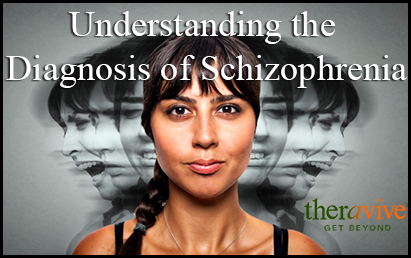 A Misunderstood Illness
A Misunderstood Illness
Schizophrenia is one of the more serious mental health diagnoses, and is possibly one of the more misunderstood illnesses. Individuals with this diagnosis often require very close observation and intensive mental health treatment interventions in order to maintain stability. This summary will explore some of the symptoms of the diagnosis, some of the treatment options, and some of the common misconceptions about the illness. There seem to be varying levels of stigma surrounding mental health issues, and schizophrenia suffers as one of the more stigmatized disorders. The origin of this stigma and misunderstanding is important to understand as well.
Because of the misconceptions about the illness, friends and family members may be fearful of the individual or of the diagnosis itself. The Northeast Ohio Medical University (n.d.) has shared a fact sheet outlining some of the myths surrounding schizophrenia. Many myths and misconceptions can be attributed to a lack of education or to the way that schizophrenia is often fictionally portrayed. The most important myth to consider is that the diagnosis leaves no room for hope and dooms the patient to a lower quality of life. While there is no cure for schizophrenia, there are a number of treatment options that make it more manageable. Many times, people think that the only symptom of schizophrenia is the presence of hallucinations. There are a number of symptoms that professionals can recognize. Hallucinations are only one of them. Contrary to common belief, this is not a “multiple personality disorder”. It is also important for friends and family members to realize that people cannot always recognize when they are sick. Their brains convince them that what they are experiencing is reality so self-knowledge is limited. It is also important to know that while those with the illness are often self-destructive and sometimes suicidal, under treatment, they are no more violent than any other member of society.
The Symptoms
The National Institute of Mental Health (n.d.) defines schizophrenia as a “chronic, severe, and disabling brain disorder.” In addition, they offer a lot of information about symptoms and treatments available for those with the illness. In regard to symptoms, there are positive and negative symptoms. Positive symptoms include things such as delusions, hallucinations, thought disorders, and movement problems. Patients with Schizophrenia may move in an odd fashion or even experience periods of catatonia in which there is a complete lack of movement.
The negative symptoms of the disorder can be harder to recognize and sometimes mimic symptoms of other mental health issues. These include a flat affect, diminished speech, and an inability to feel pleasure. There are notable cognitive issues as well. There are problems with executive functioning in which it is hard to take in information, process it adequately and make a decision. Patients often struggle with focus and concentration, and have problems with their memory.
Treatments Offered
Moritz et al. (2011) outline the fact that there are effective treatment options. Most often, the first line of defense is the use of anti-psychotic medication. This is important, but it may be more effective to use medication in addition to individual and group therapy. Cognitive behavioral therapy has been shown to be one approach that provides help for the consumer. Moritz et al. (2011) also discuss an offshoot of CBT called metacognitive training (MCT) that is also showing some promise. This form of therapy helps patients to challenge their delusions and beliefs in either a group or individual setting. They are also encouraged to find alternative solutions to their delusions. This takes some level of self-awareness, so it is recommended that an approach of medication and therapy are used.
 Who is Affected?
Who is Affected?
The University of Maryland (n.d.) indicates that the onset of the disease often occurs in late adolescence or early adulthood. Additionally, men are more likely to have symptom onset earlier than women. While the disease has a heavy genetic link, it is thought that the interaction between genetics and environment are a better way to understand the problem. Some environmental factors include prenatal problems, viral infections, and childhood trauma.
Ellison, van Os, and Murray (1998) studied some traits in childhood that can be indicative of risk for schizophrenia later in life. These include developmental delays, inappropriate social interactions and cognitive issues. Schizophrenia is rarely diagnosed in early childhood, but retrospective studies of schizophrenic patients have shown these trends.
It is important for patients, and their caregivers to understand that schizophrenia is not a death sentence and should not be considered to be without hope. More is being learned about the disorder all of the time and treatment options are expanding. It is a more difficult mental health issue to deal with and requires some diligence in treatment adherence. However, given that, and a strong support system, people with a diagnosis of schizophrenia can lead fulfilling and productive lives.
_________________________________________________________________________________________________________________________________
Ellison, Z., Jim, V. O., & Murray, R. (1998). Special feature: Childhood personality characteristics of schizophrenia: Manifestations of, or risk factors for, the disorder? Journal of Personality Disorders, 12(3), 247-61.
Moritz, S., Veckenstedt, R., Randjbar, S., Vitzthum, F., & Woodward, T. S. (2011). Antipsychotic treatment beyond antipsychotics: Metacognitive intervention for schizophrenia patients improves delusional symptoms. Psychological Medicine, 41(9), 1823-32.
National Institute of Mental Health (n.d.). What is schizophrenia? Retrieved from http://www.nimh.nih.gov/health/publications/schizophrenia/index.shtml
Northeast Ohio Medical University (n.d.) Myths and facts about schizophrenia. Retrieved from http://www.neomed.edu/academics/bestcenter/helpendstigma/myths-and-facts-about-schizophrenia
University of Maryland Medical Center (n.d.). Schizophrenia. Retrieved from http://umm.edu/health/medical/reports/articles/schizophrenia
About the Author
 Cathy England, MA
Cathy England, MACathy holds a Master’s degree in Psychology and has 13 years of work experience in counseling and social work. Cathy is an advocate for mental health awareness and enjoys educating people about mental health and the ways that it impacts people and communities. Most of her experience has been in work with court dependent or delinquent adolescents and their families. Cathy has also worked as a volunteer as a Court Appointed Special Advocate (CASA) for children under court supervision.
Professional Website:
crawfordcasa.org